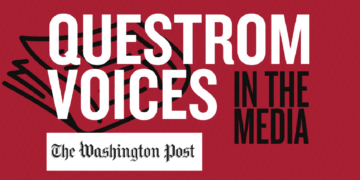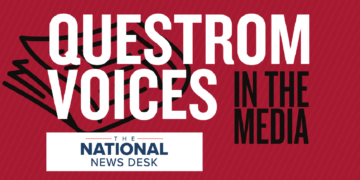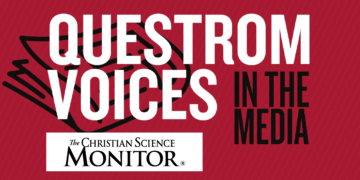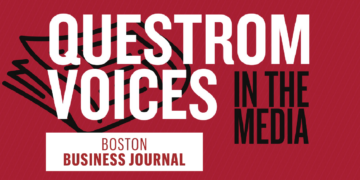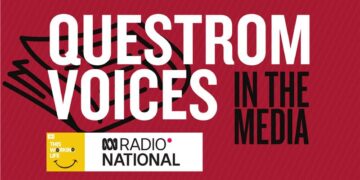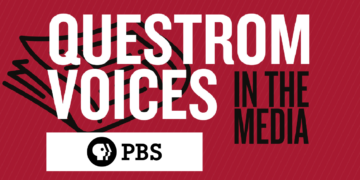How many people don’t have a bank account? And just how difficult has it become to live without one?
These questions are becoming increasingly important as more businesses refuse to take cash in cities across the U.S. People without bank accounts are shut out from stores and restaurants that refuse to accept cash.
As it happens, a lot of people are still “unbanked”: roughly 6 million in the U.S., the latest data shows, which is about the population of Wisconsin. And outside of the U.S., more than a billion people don’t have a bank account.
I am a business school professor who researches society’s transition from cash to electronic payments. I recently visited Seattle and was amazed by the mixed signals I saw in many storefronts. Numerous shops had one sign proudly proclaiming how welcoming and inclusive they were — next to another sign saying “No cash accepted.” This tells people without bank accounts that they aren’t welcome.
Not far from Seattle, Mount Rainier National Park stopped accepting cash in May 2023.
Why not have a bank account?
Why would someone want to avoid using banks? Every two years, the Federal Deposit Insurance Corporation surveys households about their connections to the banking system and asks people without bank accounts why they don’t have one. People can respond with multiple answers. In 2021, the top reason — with over 40% of respondents choosing it — was that they didn’t have enough money to meet the minimum balance.
This is consistent with data showing that poorer households are less likely to have bank accounts. About one-quarter of those earning less than $15,000 a year are unbanked, the FDIC found. Among those earning more than $75,000 a year, almost every person surveyed had some type of bank account.
The second- and third-most common answers show that some people are skeptical of banks. Roughly one-third of survey respondents agreed that “Avoiding a bank gives more privacy,” while another one-third said they simply “don’t trust banks.”
Rounding out the top five reasons were costs of dealing with a bank. More than one-quarter of respondents felt bank account fees were too high, and about the same proportion felt fees were too unpredictable.
While many middle-class and wealthy people don’t pay directly for their bank accounts, fees can be costly for those who can’t maintain a minimum balance. A recent Bankrate survey shows basic monthly service fees range between $5 and $15. Beyond these steady fees, banks earn $4 to $5 each time people withdraw cash from an ATM or need services like getting cashier’s checks. Unexpected bills can result in overdraft fees of about $25 each time an account is overdrawn.
Being unbanked in America
The FDIC calls people without a bank account “the unbanked.” People with a bank account but who primarily rely on alternative services such as check cashing outlets are called “the underbanked.”
The latest FDIC data shows almost 6 million unbanked and 19 million underbanked U.S. households. Given that 2.5 people live in the average household, this means there are over 15 million people living in a home with no connection to banks, and 48 million more in homes with only a tenuous connection to banks.
Combining the two figures means roughly one out of every five people in the U.S. has little or no connection to banks or other financial institutions. That can leave them shut out from stores, restaurants, transportation and medical providers that don’t take cash.
The true number of unbanked people is likely higher than the FDIC estimates. The questions on being banked or unbanked are supplemental questions added to a survey given to people at their homes. This means it misses homeless people, transients without a permanent address and undocumented immigrants.
These people are likely unbanked because you need a verified address and a government-issued tax-identification number to get a bank account. Given roughly 2.5 million migrants crossed the U.S.-Mexico border in 2023 alone, there are millions more people in the cash-only economy than the FDIC estimates.
How many people globally are unbanked?
While the U.S. has relatively high rates of people with bank accounts, the picture is different in other parts of the world. The World Bank has created a database that shows the percentage of each country’s population that has access to financial services. The World Bank’s definition of being banked is broader than the FDIC’s, since it includes anyone who uses a cellphone to send and receive money as having a bank account.
Overall, the World Bank estimates about one-quarter of the world’s adults don’t have access to a bank or mobile-phone account. But that varies dramatically by region. In countries that use the Euro, almost everyone has a bank account, while in the Middle East and North Africa, only about half the population does.
A more inclusive economy
Many of us swipe our credit cards, tap our phones or insert a debit card to pay without thinking. However, there are at least 6 million people in the U.S. and almost 1.5 billion worldwide who are unbanked.
When businesses stop accepting cash, the unbanked are forced to use payment methods like prepaid debit cards. However, these prepaid cards are costly. For example, Walmart, one of the largest U.S. retailers, offers a reloadable basic debit card. The card costs $1 to buy and charges $6 per month in fees, in addition to $3 each time someone wants to load the card with cash at Walmart’s registers. Paying a minimum of $10 just to set up a debit card for a few purchases is a steep price.
The next time you see a sign in a shop or restaurant window stating “No cash accepted,” you’re really looking at a business excluding many unbanked and underbanked people. Insisting that all businesses accept cash is a simple way to ensure everyone is financially included in the modern economy.
This article is republished from The Conversation under a Creative Commons license. Read the original article.


